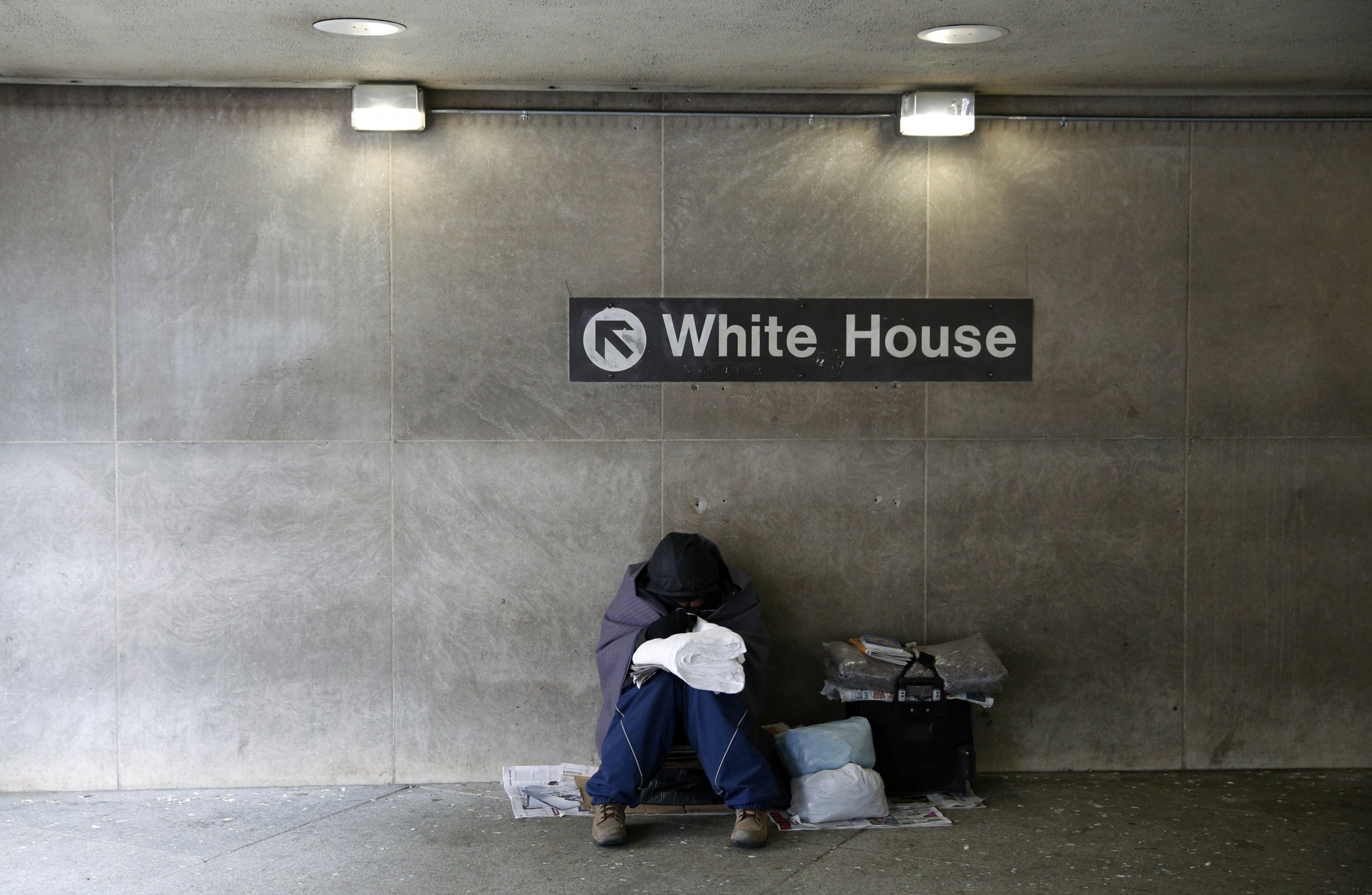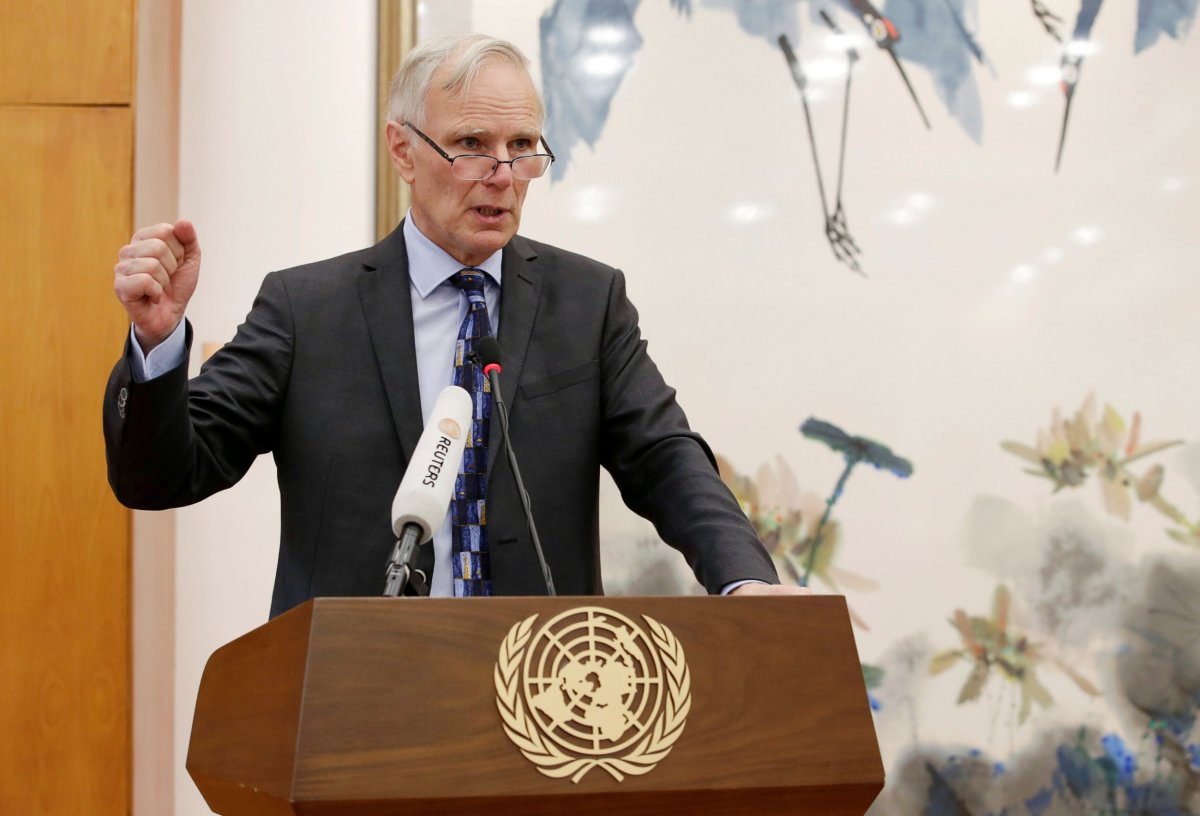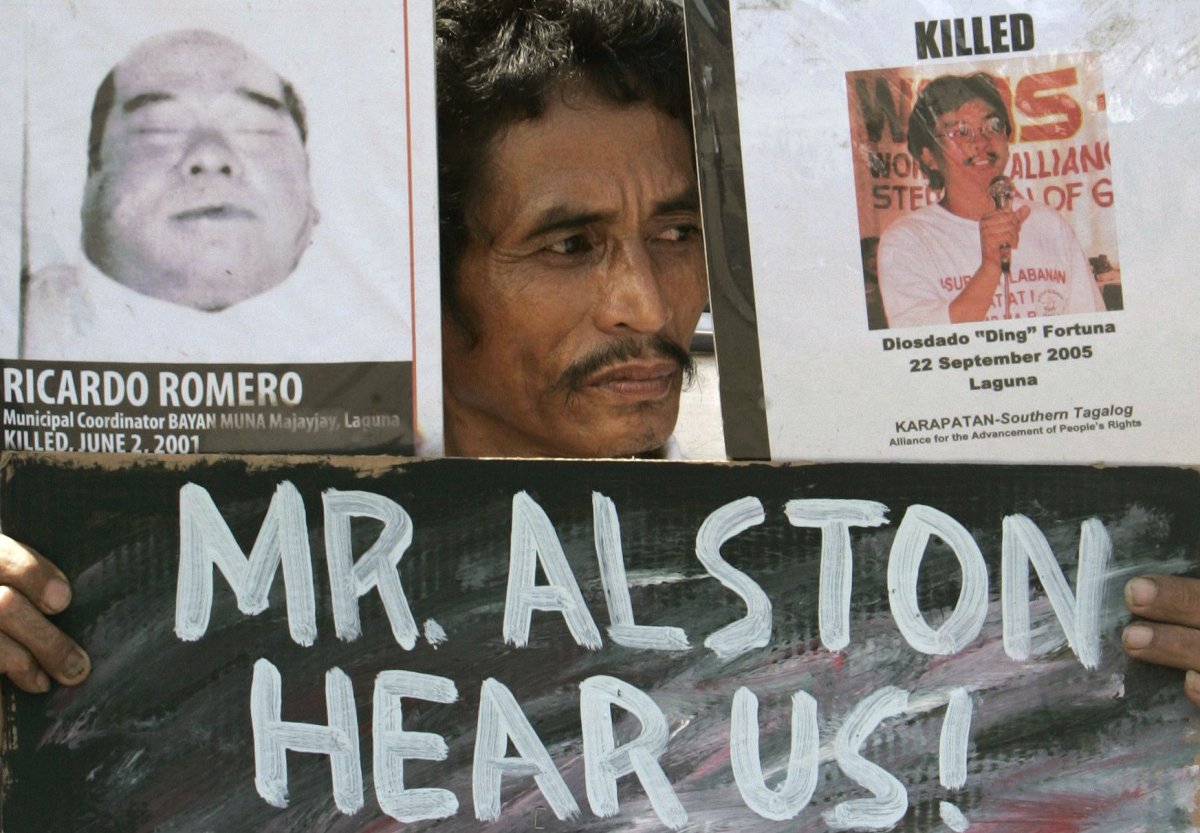
Economic inequality in the United States is so wide that it has severely undermined American democracy—and the Republican tax bill expected to pass this week is going to make it worse, a United Nations poverty and human rights investigator has determined.
Philip Alston, the Special Rapporteur to the United Nations Human Rights Council, concluded that the "American Dream is rapidly becoming the American Illusion" as the country now has the "lowest rate of social mobility of any of the rich countries." Citing the latest World Inequality Report, Alston also notes that income disparities in the U.S. have reached historic rates, as the top one percent of income earners raked in 20 percent of all income in 2016—double what the ultra-rich amassed in 1980.
"By comparison, the average annual wage of the bottom 50 percent has stagnated since 1980," Alston wrote, in a preliminary release from his report, which was the result of a two-week tour.
These massive levels of economic inequality manifest themselves in substandard living conditions and quality of life for the 41 million people living in poverty in America while the ultra-wealthy have undue influence on the legislative process.
For Alston, economic inequality in the U.S. also aides in the disenfranchisement tens of thousands of poor people in the country and undermine an already-weakened social safety.
Case in point: The Republican Party's long-awaited tax reform which, according to multiple independent reports, will increase the country's deficit by more than $1 trillion over the next decade—costs that the GOP says it will offset by cutting Social Security, Medicare, and other welfare programs that are lifelines for the poor.
Meanwhile, the bill would provide billions of dollars in tax cuts for the wealthy.
"While most other nations, and all of the major international institutions...have acknowledged that extreme inequalities in wealth and income are economically inefficient and socially damaging, the tax reform package is essentially a bid to make the U.S. the world champion of extreme inequality," Alston writes.
"The dramatic cuts in welfare, foreshadowed by the President [Trump] and Speaker [Paul] Ryan, and already beginning to be implemented by the administration, will essentially shred crucial dimensions of a safety net that is already full of holes. "
Alston's preliminary findings come at a time of record-setting indexes on Wall St. as investors eye the drastic cuts in corporate tax rates in the GOP's tax bill.

Alston, who's also a law professor at New York University, toured some of the poorest communities in the U.S. during his two-week investigation.
His last stop on the tour was Puerto Rico, a U.S. territory that is still reeling from the aftermath of Hurricanes Irma and Maria. Before the hurricanes, roughly 45 percent of Puerto Ricans lived in poverty. That number is up to 52 percent since the hurricanes made landfall in September, according to a study by the University of Puerto Rico in Cayey.
These drastic levels of poverty rob Puerto Ricans of many basic necessities: A third of the island still doesn't have electricity, and tens of thousands of Puerto Ricans lack access to clean drinking water.
"If it were a state, Puerto Rico would be the poorest state in the Union," Alston wrote.
Many of Puerto Rico's elected officials have denounced President Donald Trump's administration and Congress for not providing enough relief aid for the island's rebuilding efforts. The federal government has also impeded Puerto Rico from seeking to refinance its financial debt, magnifying the economic impact of the hurricanes.
Alston believes that that the federal government's response to the hurricanes and its overriding control of Puerto Rico's finances gives credence to the idea that Puerto Rico is not so much a territory but a colony.
"What is clear is that many, probably most, Puerto Ricans believe deeply that they are presently colonized and that the U.S. Congress is happy to leave them in the no-mans land of no meaningful Congressional representation and no ability to really move to govern themselves," Alston wrote in his preliminary conclusions. "In light of recent Supreme Court jurisprudence and Congress's adoption of [the Puerto Rico Oversight, Management, and Economic Stability Act] there would seem to be good reason for the UN Decolonization Committee to conclude that the island is no longer a self-governing territory."
Alston also visited impoverished communities in Washington, D.C., California, Georgia, West Virginia, and Alabama, which, he said, is suffering from the worst kind of poverty in the developed world.
He was particularly struck by how many children live in poverty across the U.S. Citing statistics from the Census Bureau, Alston writes: "A shockingly high number of children in the U.S. live in poverty. In 2016, 18 percent of children—some 13.3 million—were living in poverty, with children comprising 32.6 percent of all people in poverty."
This elderly woman relies on oxygen to survive and suffers frequent health complications, yet her home is without electricity. #PuertoRico #USApoverty pic.twitter.com/h7H06iqrxg
— Philip Alston (@Alston_UNSR) December 11, 2017
This afternoon I visited the clinic WV Health Right which provides free medical, dental, optic & other care for the poor and uninsured. I was shown this photograph of a 32 year old man from Southern #WestVirginia who was treated by their mobile dental clinic. #USApoverty pic.twitter.com/CUvwACULRW
— Philip Alston (@Alston_UNSR) December 14, 2017
According to government statistics, more than 40 million people - more than one in every eight Americans - live in poverty. Almost half of those, 18.5 million, were living in deep poverty with family income below one-half of the poverty line. #USApoverty pic.twitter.com/S9FEBNC4hA
— Philip Alston (@Alston_UNSR) December 15, 2017
Central to Alston's investigation is determining the level of political influence ordinary Americans have on shaping federal policy.
After a review of statistics, reports, and legislation, along with his observations on the ground, Alston determined that economic inequality has severely infringed upon ordinary Americans' ability to make a difference.
"Today's United States has proved itself to be exceptional in far more problematic ways that are shockingly at odds with its immense wealth and its founding commitment to human rights. As a result, contrasts between private wealth and public squalor abound," Alston wrote.
Alston also determines that the U.S.'s commitment to promoting human rights abroad does not translate in guaranteeing basic protections for its own citizens within its borders.
"In practice, the United States is alone among developed countries in insisting that while human rights are of fundamental importance, they do not include rights that guard against dying of hunger, dying from a lack of access to affordable healthcare, or growing up in a context of total deprivation," Alston wrote.
Furthermore, Alston illustrates how poverty is an impediment for many Americans to cast a ballot:
In the U.S. there is overt disenfranchisement of vast numbers of felons, a rule which predominantly affects black citizens since they are the ones whose conduct is often specifically targeted for criminalization. In addition, there are often requirement that persons who have paid their debt to society still cannot regain their right to vote until they paid off all outstanding fines and fees. Then there is covert disenfranchisement, which includes the dramatic gerrymandering of electoral districts to privilege particular groups of voters, the imposition of artificial and unnecessary voter ID requirements, the blatant manipulation of polling station locations, the relocating of DMVs to make it more difficult for certain groups to obtain IDs, and the general ramping up of obstacles to voting especially by those without resources. The net result is that people living in poverty, minorities, and other disfavored groups are being systematically deprived of their voting rights.
Alston also criticizes American politicians for promising their constituents a return to an industrial economy when prospects of those kinds of jobs coming back to the U.S. are slim.
"Proposals to slash the meager welfare arrangements that currently exist are now sold primarily on the basis that the poor need to get off welfare and back to work [but] the reality is very different from that portrayed by the welfare to work proponents," he writes. "There has been a long-term decline in employment rates. For example, by 2017, only 89 percent of males from 25 to 54 years were employed... Factors such as automation and new technologies such as self-driving cars, 3D printers, and robot-staffed factories and warehouses will see a continuing decline in demand for low-skilled labor."

Alston has assumed multiple human rights posts at the U.N. for over two decades.
From 1987 to 1998, he worked with the Committee on Economic, Social, and Cultural Rights, first as its Special Rapporteur and later as head of the organization. Alston went on to advise senior U.N. officials and was appointed as an adviser to the U.N.'s Millennium Development Goals.
From 2004 to 2010, Alston was the U.N.'s head investigator on extrajudicial, summary or arbitrary executions. As such, Alston released a report on drone killings of civilians and suspected militants under former President Barack Obama and other heads of state.
Since then, Alston has served as the U.N. lead human rights investigator.
In 2010, Alston criticized the U.N. for not taking responsibility for a cholera outbreak in Haiti earlier that year.
"The U.N.'s explicit and unqualified denial of anything other than a moral responsibility is a disgrace. If the U.N. bluntly refuses to hold itself accountable for human rights violations, it makes a mockery of its efforts to hold governments and others to account," Alston wrote at the time.
Alston's full report on the U.S. poverty will be released next May before being presented to the UN human rights council in Geneva. As reported by The Guardian, the international body has little enforcement power regardless of Alston's findings.
Still, Alston believes his visit to the U.S. will catalyze a wider conversation about poverty in America.
"My role is to hold governments to account," he told The Guardian. "If the U.S. administration doesn't want to talk about the right to housing, healthcare or food, then there are still basic human rights standards that have to be met. It's my job to point that out."
As of publishing time, Trump had not commented on Alston's visit or his preliminary conclusions.
Relations between the U.N. and the administration are contentious. Early in his first year in office, Trump said that the U.S. would remove itself from the Paris climate accords, a coalition of 197 nations organized through the U.N. that seeks to lower fossil fuel emissions to prevent the worst effects of climate change.
In October, the Trump administration also announced it would remove itself from UNESCO, the U.N. Education, Scientific, and Cultural agency, citing bias against Israel. A month later, Trump instructed Nikki Haley, his U.N. ambassador, to pull the U.S. from a nonbinding migration pact aimed at better serving migrants and refugees across the globe.
Uncommon Knowledge
Newsweek is committed to challenging conventional wisdom and finding connections in the search for common ground.
Newsweek is committed to challenging conventional wisdom and finding connections in the search for common ground.
About the writer
Carlos Ballesteros is a staff writer born and raised on the Southwest Side of Chicago. You can reach him at c.ballesteros@newsweekgroup.com
To read how Newsweek uses AI as a newsroom tool, Click here.








